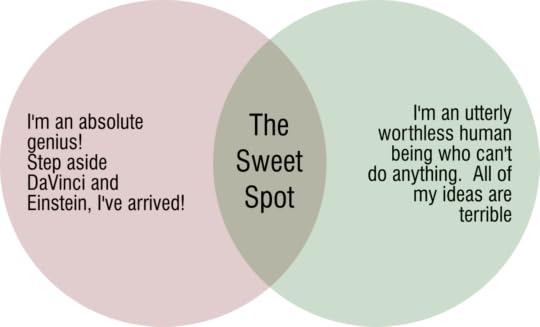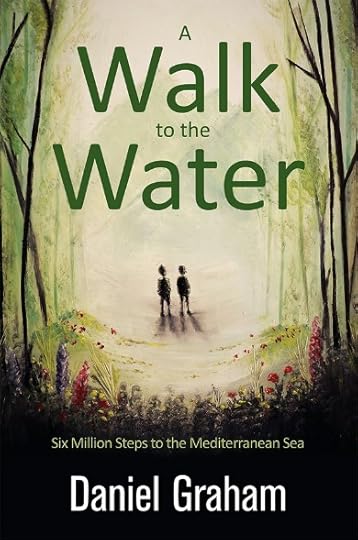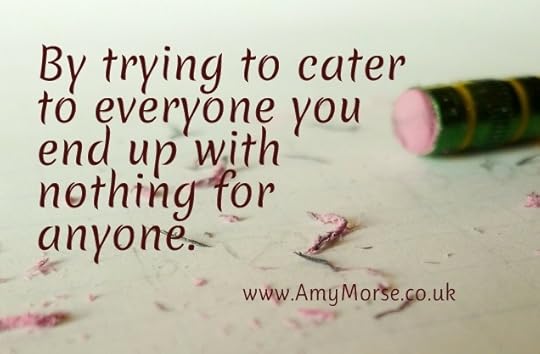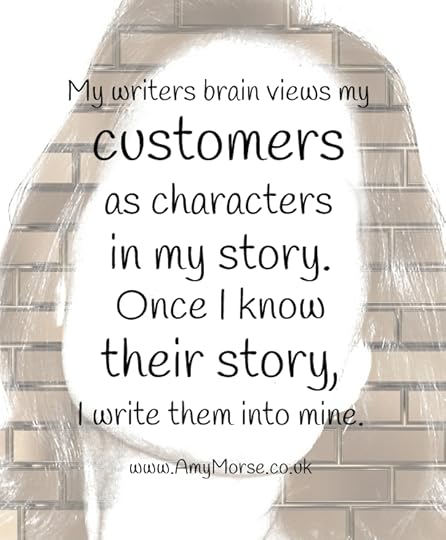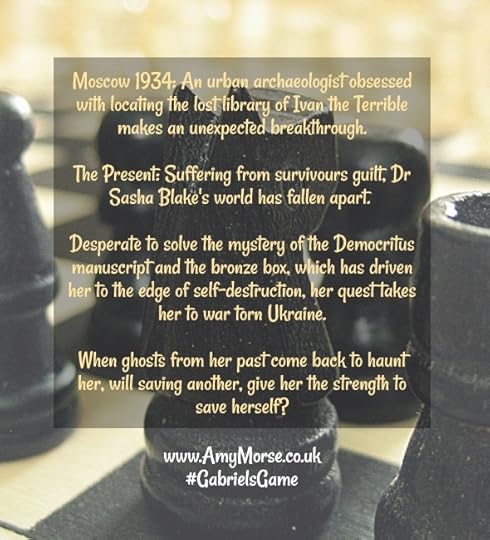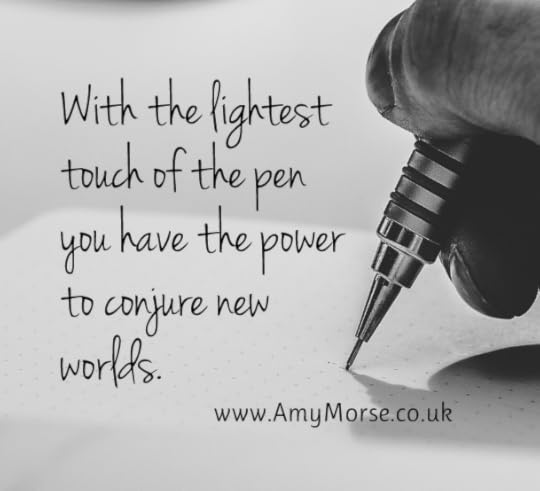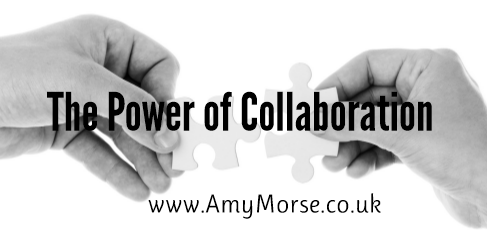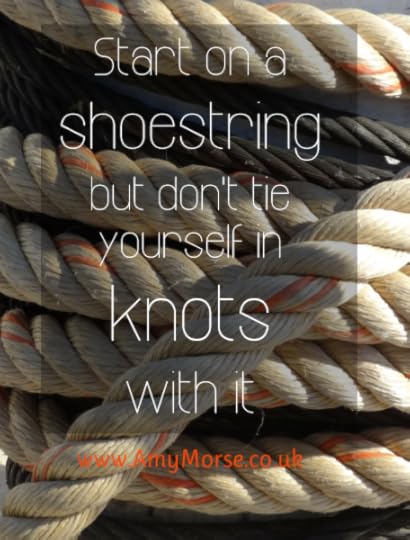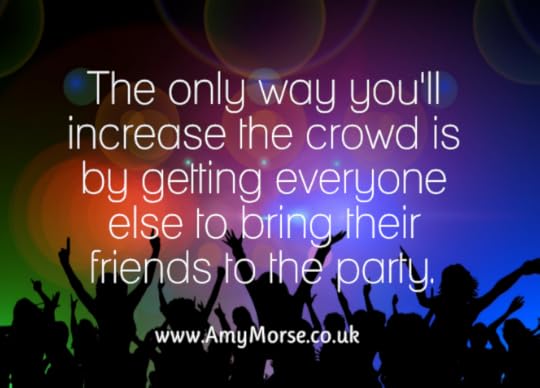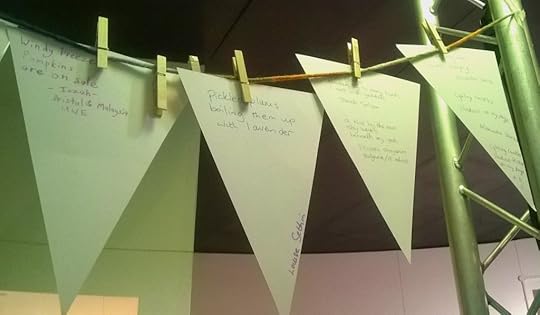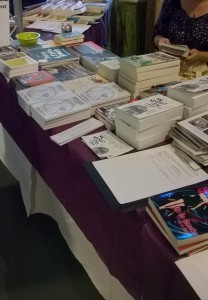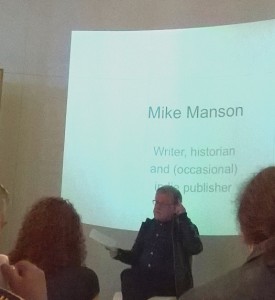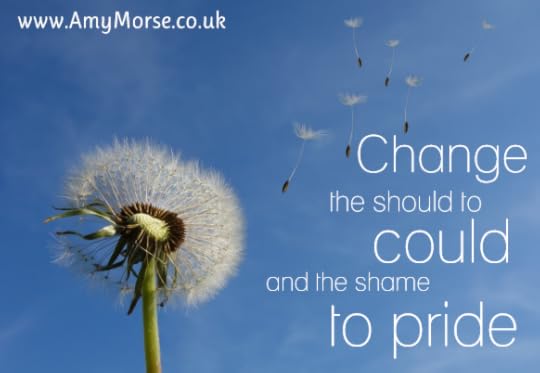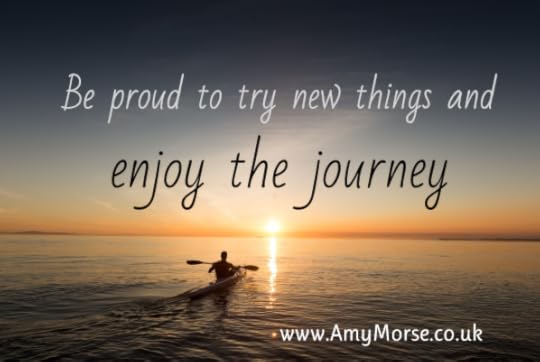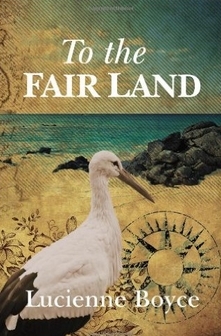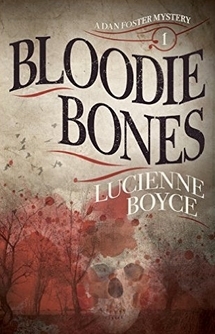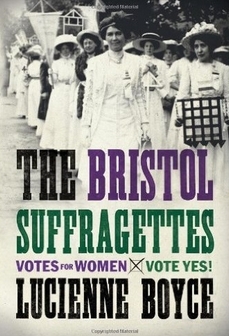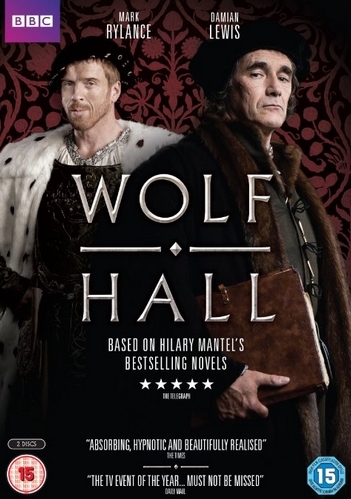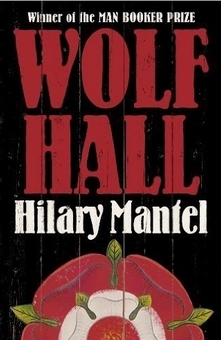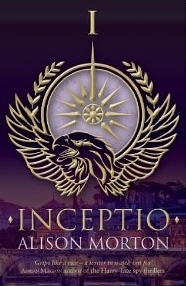Amy C. Fitzjohn's Blog, page 36
December 21, 2015
10 Last Minute Gift Ideas for Entrepreneurs
It’s that time of year again when we spend our hard earned cash on useless stuff for the people we love.
It can be a challenge buying appropriate gifts for people, especially when as we get older, we generally buy the things we need as and when we need them.
Dodge the cop out presents, avoid the over-packaged aftershaves and bubble bath and get something more meaningful for the creative entrepreneurs in your life.
Here’s 10 last minute great gift ideas:
1) How To Make A Living With Your Writing by Joanna Penn is on my wish list this year. You can’t go far wrong with books as gifts
2) 1000 Slides and PowerPoint Templates. Geeky but useful for anyone who regularly presents to clients
3) The Lean Start up by Eric Ries. I don’t want to include too many books on this list but I’ve heard lots of positive reports about this one.
4) Lego Movie CEO keyring. I love a novelty keyring!
5) Little Notebooks. Notebooks are indispensable for me in my business. As a writer, I always carry them around with me and many business owners (including Richard Branson) swear by taking regular notes. These small notebooks are less than a £1 each so you could get several of them as stocking fillers
And this little book for big ideas could be another option. I could write a whole post on my obsession with notebooks but we’ll leave that for another time!
6)Novelty Post It notes. These fruit and vegetable themed notelets are more fun than plain square ones and are just as useful. I chose the ‘pear’ as it’s appropriate for me… when I first started developing my business plans a few years ago I called it the ‘Pear Plan’ (the plan for when the job went pear shaped).
7) Business Card Holder. There are lots of different business card holders available but I like the look of this bamboo one. Great if your loved one is an ‘eco-entrepreneur’.
8) DIY Business Cards. I really like these blank cards, ideal for an artist to stamp their mark on.
9) Diaries and Planners. A spiral bound planner or diary can by laid open and flat on a desk top, but this planner appealed because it’s more than just a diary. There are task lists and spaces for other notes, as well as breaking down the day into timed chunks. Great if your loved ones new year’s resolution is to be more organised
10) Gift vouchers and events. Do you know someone who needs help to be better at business? Why not invest in an event or an activity as a gift?
Get in touch to find out about gift vouchers for 1:1 support or workshop tickets.
I’ll be running regular workshops in 2016, the first of which is ‘Achieve More in 2016’. Book here:
Keep an eye on Amazon’s latest deals too, you never know what random and interesting ideas crop up.
Happy Holidays!
December 18, 2015
The Power of Three
The seasonal slow down has allowed me to follow up with some of the inspiring entrepreneurs I’ve met across Bristol over the past few months.
It was during a 1 to 1 this week with someone I met at an NLP event hosted by ‘Monkey Puzzle Training‘ recently that I had the idea for this post.
Working for yourself is by no means the easy option. It’s much easier to get up every day, be somewhere for a certain amount of time, do as you’re told, come home and have money just happening in your bank account each month.
However, when you put the work in and pursue what you want with passion and determination, self employment can be rewarding and lucrative. But it’s tough. There is so much to think about, so much to do (not all of it fun) and you still only have 24 hours in your day like everyone else.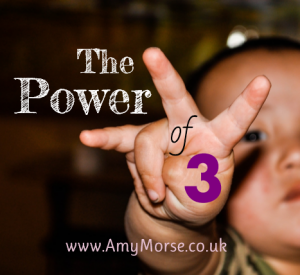
There is no magic formula. There is no ‘ A + B = Successful Business’ – but there is a sweet spot, where the three most powerful elements of your business converge:
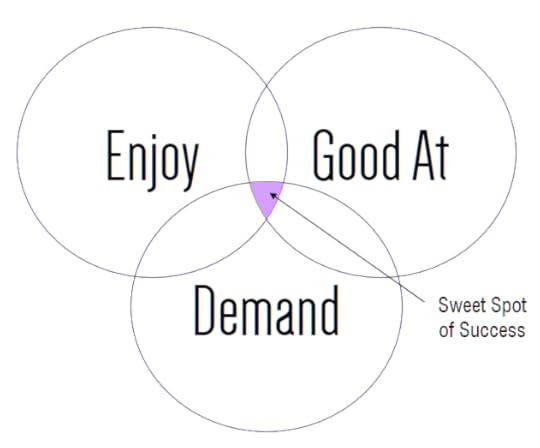 At the place where doing what you enjoy, doing what you are good at and doing something there is a demand for, you will find that Sweet Spot of Success.
At the place where doing what you enjoy, doing what you are good at and doing something there is a demand for, you will find that Sweet Spot of Success.
Be better at business and find your sweet spot of success, I’m running regular pop up workshops in Bristol throughout 2016
Powered by EventbriteDecember 7, 2015
4 Cold Truths to Bust Your Excuses
There are many reasons we don’t achieve the things we want to. We all have so many demands on our time and are impacted by the expectations imposed on us by ourselves, by others and by society as whole.
I wrote a blog on the concept of ‘Should Shaming’ recently with motivational tips to overcome those limiting beliefs.
Of course, there are things beyond our control that stop us achieving what we want, but the one thing we can control is our own attitude and approach.
Give yourself a good talking to.
If you need motivation to move forward, here’s some mantras to bust the excuses that stop us getting things done:
We all have 24 hours to use each day. Not having the time is just an excuse, other people manage it so why can’t you? If it’s important, you’ll make the time and to make the time to do what’s important, you need to take responsibility and organise yourself. (I can help – come to the workshop below.) The more you do to publicise our own work and build your personal brand and reputation, the more money you’ll make from it, it’s in your best interests to be proactive in your business or career. If you don’t know where you’re going how will you know when you arrive? Always set goals if you want to get something done, otherwise you’ll be forever floating around hoping for the best and that’s just lazy (Achieve More in 2016 with proactive goal setting) Sometimes you’re wrong. Sometimes you make mistakes. Congratulations, you’re human. Don’t waste time and energy feeling sorry for yourself or shifting the blame. Accept your part of the responsibility, move on and know when to say sorry.If you need some strategies to manage your time better and set some sensible goals, come to a workshop in Bristol on Friday 29th January 2016.
Develop your own strategies and get ideas and inspiration to help you Achieve More in 2016:
PS: I always have homemade cake at my workshops at the Tobacco Factory
Powered by EventbriteNovember 26, 2015
You’re More Creative than You Think
I attend a lot of events in Bristol, I’m always looking for ways to meet new people and expand my network, I get most of my work from networking.
At an event, the first thing people ask when they meet you is “What do you do?”
This is where having a really concise pitch helps. You need to be able to sum up what you do quickly and simply to keep them engaged, otherwise they are liable to politely exit your company and find someone less flaky to talk to.
Knowing what to say and how to say it to hook people in takes practice and determination. It will evolve over time as your knowledge, experience and the nature of your business does.
I work predominantly with micro businesses, often individuals who have gone through the messy start up phase and are just establishing themselves. They are at the point where they recognise there are areas of weakness in themselves and their business and accept they need to invest in some support.
I introduce myself as an author and entrepreneur. I write and have built a business around my books to help other creatives be better at business.
It surprises me how many people tell me they are not creative.
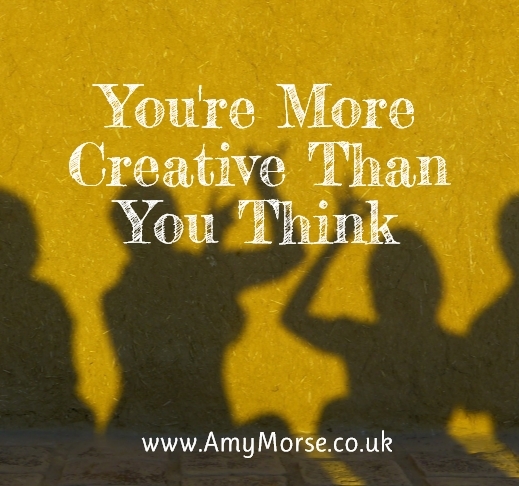
We are all creative, here’s why
Who told you you’re not creative? That’s absurd!
Human beings are inherently creative. Just because you’re not Leonardo DaVinci or Picasso or don’t spend your free time on handicrafts, doesn’t mean you are not creative.
Being self employed is the clearest expression of creativity you can make (Tweet This)
A big component of creativity is problem solving. As a self employed person your whole purpose for being is to solve the problems your customers have by providing solutions.
I deliberately used the word ‘flaky’ earlier because it’s the one word that people associate with creativity that they want to disassociate themselves from.
We tell ourselves we’re not creative because we don’t want to be a perceived as flaky (Tweet This).
So you think you are not creative?
Do you recognise any of these?
Procrastination
When there’s work to do, sometimes a million other things take up your time, like washing up, browsing the internet, making yet another cup of tea. Clearing your head, creating a sense of urgency, not using your brain by occupying yourself with mundane tasks is often just part of your process. Don’t beat yourself up about it, but don’t let it cripple you either.
So much to do, so little time
You seem to be constantly busy. Could it be that your brain is making a big deal out of things? You’re great at ‘creating’ things to do to fill you time and constantly on the look out for ways to make it easier.
You thrive on stress
You need to be constantly stimulated, if you’re not stressed you feel purposeless. Pressure forces you to come up with solutions and work efficiently, an inherently creative process (even if it involves putting formulas into a spreadsheet!).
You like an easy life
I described myself as lazy to a client recently. My point being; I like to systematize and organize things because I don’t want to waste my time repeating myself, freeing up my time to do the stuff I love. Finding a way to automate a task is a creative approach.
Risk taking
We all take risks. People often associate risk with recklessness so we tell ourselves we’re ‘risk averse’ because it feels safer. Some of us are more open to risks than others but the very act of being self employed is a risky thing to do. If you don’t take risks you never make any discoveries or learn anything new.
Self doubt
If you ever question your capabilities, if you ever fear making a fool of yourself, or getting it wrong it’s not something you’re comfortable with. You recognise it and want to change it and you need to try different approaches to do it.
Self doubt often comes from us telling ourselves or being told that we ‘can’t’ do something or we are ‘not’ something. Stop telling yourself you’re not creative, all you’re doing is adding to that list of barriers.
Overconfidence
Self esteem comes from embracing your small victories. Every little win accumulates and each of those wins was as a result of you solving a problem.
We all have moments where we question ourselves and we all have moments where we believe in ourselves. We need both of these in order to make decisions and find the sweet spot where we are at our most productive and contented.
You are always learning
We are always learning, often without even realising it. But if you actively enjoy learning it’s because your brain is hungry and curious and that’s fuel for creativity.
You have peaks and troughs of activity
Sometimes you are really into this thing, another time you really enjoy something else. These cycles you go through are the way your creativity stretches it’s legs, by trying new things.
You get bored easily
This impatience is your brains way of telling you it needs stimulus to consume, it’s running out of creative fuel.
You can happily do the same thing for hours on end
This is either because you’ve found something that you want to explore in more depth and examine more closely to better understand it, or because you need to switch off and give your brain a rest for while (probably because it’s been busy doing something passively creative).
The Zone
Do you ever find yourself so consumed in an activity that you shut out everything else around you? You’re in ‘The Zone’ and even if you’re working through a methodical or analytical task, The Zone is when your creative brain is at it’s most stimulated.
There is a sliding scale of creative expression. Some of us are more creatively expressive than others (artists, writers, musicians, etc) but that doesn’t mean you’re not creative. Maybe you’ve not found the thing that works for you to creatively express yourself? Or maybe your version of creativity comes from problem solving?
We are all creative, because we are all inherently decision making creatures and problem solvers and that is what creativity is really about.
If you’re still not sure, here’s a nice feature on ‘Lifehack’
If you do any one of these things, stop telling yourself you’re not creative, you are, and it’s OK. Embrace it, you never know, you might like it
November 17, 2015
The Beauty of Preparation – 5 Lessons from Writing a Memoir
This week I am proud to showcase the work of another talented emerging writer in Bristol who is just venturing into the world of building a business around his book.
In this guest post, Danial Graham, offers the lessons he learned from publishing his debut book, a memoir of his walk across Europe.
Daniel Graham grew up in Bristol, England before moving to Plymouth on the south coast to study BSc Geography. After  completing his degree in 2009, he left England for six years, working and travelling in a number of different countries around the world. Spending much of his life outdoors, Daniel’s writing reflects his love for the natural world. He recently returned to Bristol and is planning his next adventure.
completing his degree in 2009, he left England for six years, working and travelling in a number of different countries around the world. Spending much of his life outdoors, Daniel’s writing reflects his love for the natural world. He recently returned to Bristol and is planning his next adventure.
For an insight into Daniel’s current work, head over to his blog scuffedboots.com, a collection of writings, sketches and paintings with an ambition to inspire walking.
Read more about Daniel and his work at his website: http://danielegraham.wix.com/author
Follow him on Twitter @DanielGraham33
His book is available from independent Bristol publisher, Silverwood Books
By Daniel Graham, author of A Walk to the Water
Two years ago, my brother and I walked 3,000 kilometres through Western Europe, from our doorstep in Bristol, England, to the Mediterranean Sea. After returning from our adventure, I decided to write an account of our journey, a memoir. So I did, and I am now the proud author of A Walk to the Water: Six Million Steps to the Mediterranean Sea.
I learnt a lot in the five months that we were walking, but even more in the two years that followed. And in the case of the latter, there was one message that stood out above all else: the key to a producing a book that you are proud of is in the preparation.
Preparation can come in many different forms, below are five of the lessons I learnt along my way to becoming a published author.
Lesson 1 – Be realistic
The brutal reality of publishing your own book is that you are very unlikely to become famous. Indeed, most authors with an ounce of realism in their blood would be happy just to break even, and that includes myself. That said, there are many other reasons for writing a memoir, from personal reflection and self-education to inspiring others.
Lesson 2 – Be proud of your story
Memoir is a genre of writing based on personal observation and experience. Unlike an autobiography, which recounts an author’s life, a memoir is the record of a single story. We all have significant moments in our lives; if something has touched you then the chances are that it will touch someone else. Remember this and be proud of your story. Inform people of your experiences and tell them you are writing a memoir. Their enthusiasm can provide you with that extra burst of inspiration needed to get you going on your own.
Lesson 3 – Consider online courses
Midway through writing A Walk to the Water I signed up to an online course: Essentials of Memoir Writing with Creative Writing Now. I wish I had done it sooner. Such online courses, many of which are free, can help hone your focus and make sure you are heading in the right direction. The courses often have discussion groups too, giving you the chance to bounce ideas off other writers.
Lesson 4 – Gather your resources
Memoir writing should be an accurate record of your personal experience. We are lucky these days to have a wealth of resources at our fingertips. Gather these assets together before you begin work. For my book, I collected photographs taken on our journey, notes from the path, maps, guidebooks, plant identification charts, and history books. I even had a jar of sea water that my brother and I had collected from the Mediterranean Sea propped up on the side of my desk for inspiration.
Lesson 5 – Memorise the five rules of memoir writing
There are many rules to writing an effective memoir. Here are the five that I value the most:
Remember your senses – when you experience a place, you call upon all of your senses. The reader should not only see the scenes, but smell, hear, taste and touch them too. Fall in love with a scene, but not all of them – describing a scene in great detail can be a great way to show the significance of a place to the reader. But use this strategy sparingly, otherwise the reader may lose patience. Create memorable characters – when a new character is introduced, be sure to enhance their presence with stand-out description. Elaborate on the basics and pick out the details that highlight the individuality of your characters. Dialogue is key – descriptive passages can be wonderful to read, but sometimes they may become monotonous. Use dialogue to alter the tone of a scene. Furthermore, instead of using description, you can use a character’s voice to educate the reader on their personality, their surroundings and their past. Have an obsession – creating consistency throughout the memoir can help to make the reader feel comfortable. When writing A Walk to the Water I would often refer to the evolving state of our trail mix. Having a familiar subject matter, such as trail mix, can bring context back to the reader.Effective preparation will reduce the frictions involved in the writing and editing stages of your book, making the entire process an informative and enjoyable experience, just as it should be.
For more information on A Walk to the Water, please visit www.danielegraham.wix.com/author
November 6, 2015
How to be Irresistible to Your Customers
We all know that without customers there is no business.
You can have the most beautiful product in the world, have invented the coolest new bit of technology or written the best book ever woven from a combination of 26 letters but if no one will pay you for it, you don’t have a business.
So who is the customer that will see the value in what you do and have the faith to spend their money on it?
The answer is never, EVER, everyone! It just isn’t, okay.
If someone says ‘everyone is their customer’ this is the sensible reaction…
There are 9 billion people on the planet, they are not all going to be your customer.
As an author, I can start to narrow down my readers with four immediately obvious factors:
Not everyone is able to read Not everyone is able to read English Not everyone reads for pleasure Not everyone reads in my genreAlready, just getting the obvious things out of the way, I can start to build up a picture of who will be the type of person to buy my Sheridan and Blake books.
You will never please all the people all the time. That, I’m afraid is just life. I wrote a feature on this for Prowess Women in Business last year:
You Can Never Please All The People – Live With It!
It seems counter-intuitive to people new to business; you don’t want to restrict yourself, you need customers and you don’t really care who they are as long as they give you money.
That’s fine… to a point, but is not sustainable long term.
Soon you’ll find yourself losing focus and motivation. You’ll be pulled in thousands of directions or you’ll be so bland people will just stop noticing you as soon as the novelty of you being shiny and new wears off.
Picture this: Have you ever been into a pub and it’s got a funny atmosphere?
It’s probably because no one quite fits in there. By trying to cater to everyone you end up with nothing for anyone.
People walking in will ask themselves: Is this a boozer or a wine bar? A restaurant or a pub? A night club or a cafe? A creche or an office? It’s all and none of these things so they’ll go somewhere else instead.
My writers brain views my customers as characters in my story. Once I know their story, I can write them into mine.
I’m running a workshop on 20th November 2015 to help you do exactly that.
In this interactive workshop we explore your marketplace, looking at customers and competitors but focusing on customers.
We will look in depth at who your customers really are and how to attract them to your business.
Learn to creatively profile your ideal customer and target your marketing more effectively, share ideas and network with other entrepreneurs.
Workshop includes tea, coffee and homemade cake.
Get into the head of your customer and be better at business.
Book your place now, tickets are limited.
Powered by EventbriteOctober 27, 2015
Editing Tips – An Update
I’ve just finished the first draft of the next book, Gabriel’s Game, Part 2: The Black Knight.
Here’s the blurb:
The first half of this book – the final in the Sheridan and Blake Adventure Series – Gabriel’s Game, Part 1: The White Queen was published in the summer.
Next comes the lengthy and sometimes painful editing process.
Whenever I’m editing – ready to send my book on to proof readers, editors and beta readers – I always refer back to an earlier blog post to prompt me.
The Editing Process: 4 Top TipsAs my skills as a writer have improved (inevitably all our skills improve with time and practice), I’ve come to recognise superfluous words that sneak into my writing.
The skill of good writing is to say a lot with few words. All extra words do is make your writing sluggish and detract from 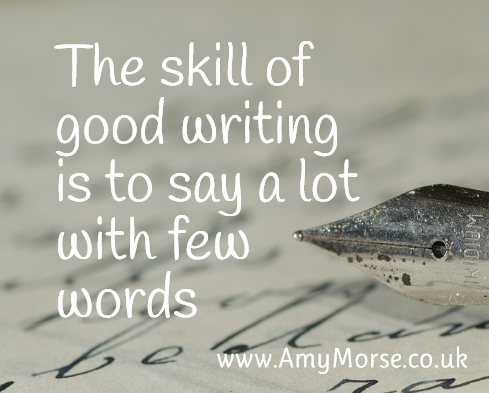 its impact. As a writer of thriller fiction, anything that slows the pace and bogs down my readers in over description is a no no.
its impact. As a writer of thriller fiction, anything that slows the pace and bogs down my readers in over description is a no no.
It’s a simple fix to track these pesky extra words in your manuscript, just ‘find’ the word, read it in context and where appropriate delete it to tighten your narrative.
Experiment with tenses to create action ie: remove unnecessary words and go with the Present Continuous version of the verb (ie: action words ending with ‘ing’) or go with the Present Perfect (ie: instead of ‘they were walking’ use ‘They walked’ – fewer words, more immediate action.)
On the earlier blog I listed some words, I’ve repeated them here and added to the list:
That (ie: ‘he knew that it…’ becomes ‘he knew it…’) Really Very Suddenly Then Some Again Is, am, was, were (use powerful verbs and fewer words) Started (ie: she started to walk…’ becomes ‘she walked…’) Like Smile (make each ‘smile’ count) Sigh (minimise the sighing – is there a better way to express emotion?) Briefly Trying to (is it happening or not?) A moment (the pause in activity is often apparent anyway – don’t spoon feed your reader) A little (whether something happens a little or a lot is often inconsequential in context, rely on the verb to do its job) Only Just Certainly Barely Felt / feel (in deep POV the reader doesn’t need to be told to ‘feel’ they are already in the head of your character.)Beware the adverb (words that end ‘ly’)
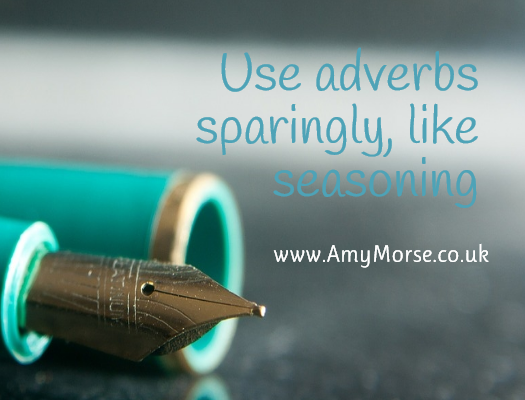 Think of them as seasoning; part of the dish but so subtle you don’t notice them.
Think of them as seasoning; part of the dish but so subtle you don’t notice them.
In Stephen King’s fantastic book: On Writing – one I recommend every serious writer reads – he offers some great soundbites that are worth remembering: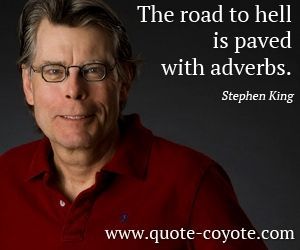
‘The road to hell is paved with adverbs’
The editing process can be tedious and painful…
Be brave and fearless Less is often more It’ll never be perfect. There’s no such thing as perfect. Learn to let go… Enjoy the story you’ve createdOctober 21, 2015
The Power of Collaboration
It’s the fifth annual Bristol Festival of Literature from 15th to 24th October 2015, and this year we’ve done things a bit differently.
We bought the community together and established an organising committee. We collaborated.
By sharing the responsibility, by allocating roles, by recognising the skills, strengths and time each of us could contribute we’ve pulled it off and created 10 days of literary loveliness in our city.
A valuable lesson I’ve learned in the development of my own business and one that I see people struggling with all the time is the sense that because it’s ‘your thing’ that you are ‘self’ employed you somehow have to do everything yourself.
Because of financial constraints, in the early days, you probably will start on a shoestring and then tie yourself in knots with it.
[image error]
Longer term, as you get busier and as you start to come to terms with your own limitations, you have to accept that you can’t do it all yourself. I hosted a guest blog by A A Abbott in August about this: Teamwork is Dream Work
The starkest example of how difficult it is to try to do it all yourself is when it comes to marketing and promotion. Until you can break out of your own networks you will always limit what you can achieve.
We successfully raised just short of £1,500 through crowdfunding for Bristol Festival of Literature and I raised £1,000 through crowdfunding when I published my second book, Solomon’s Secrets.
This happened because of the collective efforts of a team. You need a ‘crowd’ to succeed with crowdfunding and the only way you’ll increase the crowd is by getting everyone else to bring their friends to the party.
There is a diverse and growing community of writers in Bristol, with several writers groups representing and supporting writers across all genres and experience levels. There is an existing and increasingly popular calendar of literary events throughout the year and Bristol Festival of Literature brings these communities of readers, writers and the curious together to raise the profile of the written word as a form of creative expression.
Here are just a few of the groups and events already happening throughout the year in Bristol:
NEWB (New and Emerging Writers of Bristol)
…To name but a few.
A highlight for me of this years festival was the 3 day takeover over the Bristol Green Capital 2015 Lab space on the 16th, 17th and 18th October.
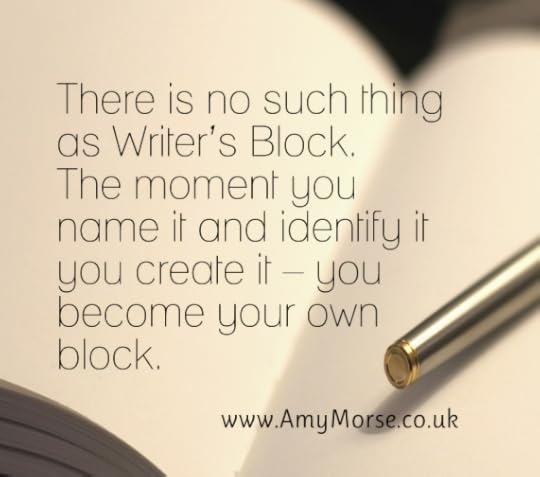 On Friday 16th we welcomed Morag Joss from Moniak Mhor, Scotland’s writing centre for a workshop: ‘Page Fright and how to overcome it.’
On Friday 16th we welcomed Morag Joss from Moniak Mhor, Scotland’s writing centre for a workshop: ‘Page Fright and how to overcome it.’
In the workshop Morag worked with a group of budding writers with a series of exercises designed to motivate, inspire and bust through the fear of a blank page. Morag said something that really resonated with me:
There is no such thing as writer’s block. The moment you name it and identify it you create it – you become your own block.On Saturday 17th and Sunday 18th I hosted a book bazaar and seminars.
Writers from various groups across the city had their books for sale at a book fair and we have various speakers take to the stage.
Day 1: Saturday 17th October was all about the craft of writing and one of the speakers was Lucienne Boyce, who write a guest post for me in September on Imagination in the Archives.
Alan Summers, an award winning haiku writer wrote haiku with visitors and we displayed them as bunting around the room
It was great to see all the books written and published by those involved in the festival
Day 2: Sunday 18th October was about the Business of Writing.
Well known local writer Mike Manson gave a talk on confessions of an Indie Publisher
I did a talk too on having a business plan for your book. Here are the 9 top tips I left the audience with:
You don’t have to do it all yourself – Build a team and expand your network Be generous with your time and knowledge so people will say nice things about you. Say nice things about other people and they’ll say nice things about you. That’s the power of word of mouth Selling is not selling yourself it’s selling a thing (in this case your book) As soon as you release your book into the wild you are a business and you need a plan Business is serious but it doesn’t have to be scary. Ask for help, learn about being in business. Take is seriously Devote the time and attention to your business it deserves The secret to successful marketing is little and often You can’t do everything at once, be realistic, set yourself goals and do it one step at a time. Baby steps All a customer really wants to know is ‘what’s in it for me’ – always keep your customer (your reader) at the heart of all communicationOctober 8, 2015
Should Shaming: What Expectations Are Holding You Back?
I recently atte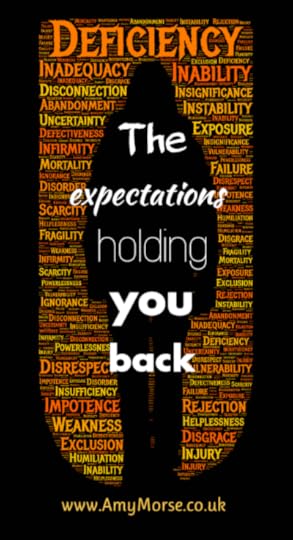 nded an Escape the City event in Bristol on World Escape Day. Bristol was one of 22 cities who simultaneously celebrated the event. Escape the City is an international movement to help people escape unfulfilling jobs and transition into the new world of work.
nded an Escape the City event in Bristol on World Escape Day. Bristol was one of 22 cities who simultaneously celebrated the event. Escape the City is an international movement to help people escape unfulfilling jobs and transition into the new world of work.
In the room, at the Famous Royal Navy Volunteer, were people wanting to escape for various reasons, as well as people who had already escaped.
As an Authorpreneur, I was one of the ‘I’ve already escaped’ and found myself speaking to lots of great people about my experiences and tips for escaping to the world of self-employment.
At the event, we grouped together and shared our challenges and what was holding us back.
In the group I was in someone said ‘should shaming’.
This intrigued me and it’s something we probably all feel at some stage in our lives. Even the alliteration – the combination of ‘sh’ sounds is like being berated.
‘Should shaming’ is the sense that you should be doing something or not doing something and if you don’t then you should be ashamed.
There are 3 big instigators of should shaming in our lives
Ourselves
Telling ourselves what we should have achieved by now then being ashamed of ourselves because we haven’t done it
Other people
Other people have expectations about what we should have done and make us feel shame for disappointing them.
Friends and family often do this without malicious intent; but because they care about us and they can’t help but project their own values on us because that is their understanding and experience of the world.
Society in general
Society puts expectations on us then shames us for not conforming.
(I’ll avoid getting into the politics of the ruling elite’s necessity to have compliant citizens. As well as deep held cultural, religious and spiritual beliefs that dictate the traditions we live by.)
Instead, here are some of the typical ways we are told (or tell ourselves) we should do something:
You’re in your thirties if you’ve not married there’s something wrong with you.
You’re a woman of childbearing age you should have children (this one especially is close to my heart, as a woman who has chosen not to become a mother.)
You should be a home owner
You should have a career plan
You should be ambitious
You should work for someone else
You should have a job to go to before leaving a job
You should be thin and beautiful
You should be fashionable
You should be normal
I believe, there is only one should: ‘Do what makes you happy’ – set your own goals and expectations for yourself and never be ashamed of the person you are.
Too often, we compare ourselves to others – but you are comparing your insides to other people’s outsides – that’s hardly a fair comparison!
People present the best side of themselves in public, you have no way of knowing what is really going on inside that person you are comparing yourself to.
Comparing yourself to others will only make you miserable (Tweet This)
Here’s one top tip to banish that should shaming voice inside us:
Change the should to could and the shame to pride:
You could get hung up on being single in your thirties or be proud to have escaped that harmful relationship. You could be proud that you are your own person and don’t need to be in a couple to define yourself. You could be proud to be independent. You could have children or be proud to make your own choices and proud to not give in to the pressure to procreate. You could save up and buy a house or be proud that you have the freedom to change location and don’t have all that debt and responsibility. You could be ambitious and have a career plan or be proud to try new things and enjoy the journey instead of only thinking about the destination. You could stay in a job you hate but be proud to have the self-belief and freedom to make your own way in the world. There is more to life than having a company pension in 30 years’ time. You could wait until retirement to start enjoying your life, instead be proud to live in the moment. You could starve yourself to be thin and impress other people but instead be proud to love the body you’re in You could be ‘normal’ (whatever that is) but instead be proud to be different and to just be yourselfJust be…
September 15, 2015
Imagination in the Archives – A Guest Post
It gives me great pleasure to share another guest post with you this week:
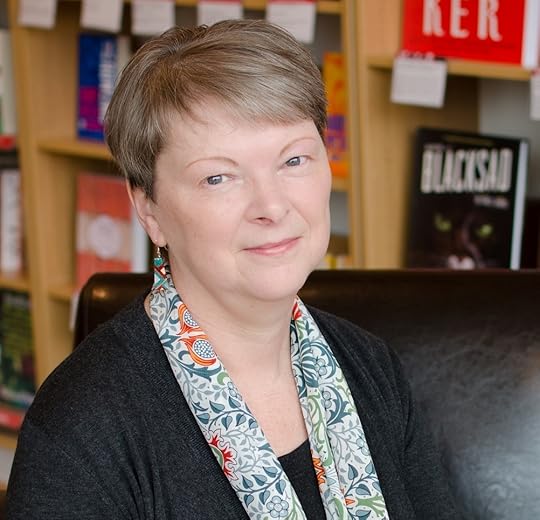 Lucienne Boyce is a historical novelist and historian based in Bristol, which is the inspiration and setting for much of her writing. She has published three books with SilverWood. To The Fair Land (2012) is an eighteenth-century thriller set in Bristol and the South Seas, and Bloodie Bones: a Dan Foster Mystery (2015), set near Bath, introduces Bow Street Runner and amateur pugilist Dan Foster. The Bristol Suffragettes, a history of the local suffragette campaign, was published in 2013.
Lucienne Boyce is a historical novelist and historian based in Bristol, which is the inspiration and setting for much of her writing. She has published three books with SilverWood. To The Fair Land (2012) is an eighteenth-century thriller set in Bristol and the South Seas, and Bloodie Bones: a Dan Foster Mystery (2015), set near Bath, introduces Bow Street Runner and amateur pugilist Dan Foster. The Bristol Suffragettes, a history of the local suffragette campaign, was published in 2013.
Find out more at www.lucienneboyce.com
Bloodie Bones: a Dan Foster Mystery
She is very generously giving her time to speak at the Bristol Book Bazaar on 17th October as part few Bristol Festival of Literature. I’m really looking forward to her talk on researching for historic fiction.
Tickets are available now from Bristol Ticket Shop
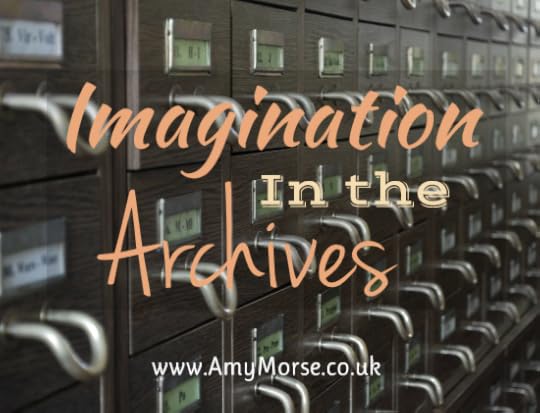 Imagination in the Archives
Imagination in the Archives Whenever I’m asked what is the single most important research tool the historical novelist can have I answer: imagination.
It’s not that practical research skills don’t matter. It’s necessary to know how to use libraries and archives, what to avoid if you’re using internet resources, where to see buildings and weapons, costumes and cutlery…In short, how to access the information you need if you’re writing a historical novel.
But I think that writers can get too hung up about research. They fret and worry about “accuracy”, and strain themselves to track down every detail. They’re so afraid of giving a wrong impression or of missing something out (all important considerations) they lose sight of why they’re doing the research in the first place.
And so their research takes on a life of its own. They amass folders full of notes, a reading list that stretches to the moon and back, and a constantly expanding list of “things to look up”. Now they’ve got their “research” on the one hand and their “novel” on the other and they’ve no idea how to join the two together.
I believe that it’s imagination that unites these two aspects of creativity. You don’t just need your imagination when you’re writing the novel. You need to take it with you into the reading room.
Who are your characters?
For example, what you need to know all depends on who, when and where your character is, and what you think is going to happen to them. If you’re writing a story set in war time but your protagonist is a non-combatant, there might not be a lot of point spending hours researching military costumes.
Or you might have only the vaguest idea about your character when you begin. Say you’ve got as far as thinking you want to write about a monk in twelfth-century Shrewsbury, but that’s all you know of him so far. Yet even that bare outline is enough to guide and direct your research. What kind of people became monks? At what age? Might they have had other life experiences before entering the cloister?
As the characters and their stories develop, so your research will expand to accommodate them. But that doesn’t mean you can’t keep your research focussed. Always keep your characters in mind. Try to picture them in the situations you’re reading about. Pick out the details that are most important to them. Don’t just notice what people wore: ask yourself, what would my character wear? Would she or he personalise their outfits, set trends, dress to impress, dress to shrink into the background?
What’s the plot?
If you’re writing a love story, you’ll need to know about things like the relative positions of men and women in society, or if homosexuality was a crime, or if love across the classes was possible. If you’re writing a war story, you need to know about tactics, uniforms and weaponry. If it’s a history mystery, you’ll need to know about the law and investigative methods of the period.
Keep an eye open for the information that will help drive your plot forward. Ask yourself: will this fit into my story? Will it be there for a purpose or will it just be padding?
What kind of story are you writing?
How you approach your research will depend on what kind of story you’re writing. Do you want people to learn about history from your book? Then historical accuracy will be important to you, and you’ll be drawn to events and settings for which reliable records exist.
Or perhaps you find the concept of discoverable “facts” questionable: records are always biased, incomplete or missing. So you may not accept everything you’re told; you may question eye witness accounts; you may choose to focus on one aspect of an event rather than another.
Or perhaps you want to defend a famous historical person. Richard III is someone who many writers want to portray as something other than the villain history – and Shakespeare – has painted him to be. Hilary Mantel gives us a different perspective on Thomas Cromwell in her books Wolf Hall and Bring Up the Bodies. If this is the kind of book you’re imagining, you’ll be looking for as many different perspectives on that individual as you can find.
Perhaps you envisage your story as an alternative history, like Alison Morton’s Roma Nova series (a Roman colony has survived into the present day). In that case, you’ll be on the lookout for a viable turning point – for the moment when everything is capable of change.
The interesting nugget
One of the dangers of letting research take precedence over imagination is the temptation to include in your novel information that isn’t relevant to the story or the characters. This is an area in which many historical novelists fall down. They get so carried away by all the research they’ve done they think they have to put it all in their book. The result is a story that gets bogged down in detail, goes off at a tangent, and loses pace.
But taking your imagination with you when you do your research could help you avoid this pitfall. Keep bringing everything back to your novel. If you stumble on something interesting or exciting that’s not at all connected with your story, not at all relevant to your characters, or won’t fit into your plot – and you may have to think about it for some time before you’re certain – then squirrel it away for possible later use. Nothing is ever wasted. The more you know about the period you’re writing about, the better your writing will be for it.
Whether you’ve written one draft, no draft or a dozen drafts, your research is all in the service of your yet-to-be-created novel. Hold it in your mind as you work and you’ll find it easier to stay focussed. Just as it’s imagination that makes a story, it’s imagination that drives the research. That’s why I believe the most important thing a historical novelist needs for doing research is imagination.
Lucienne Boyce will be talking about researching the historical novel as part of Bristol Literature Festival’s Book Bazaar & Writing Seminars on 17 and 18 October 2015. For further information see http://unputdownable.org/news-updates/2015-events-announced
Find out more about Lucienne’s work on her website: www.lucienneboyce.com
Stay up to date with her on Twitter: @LucienneWrite




